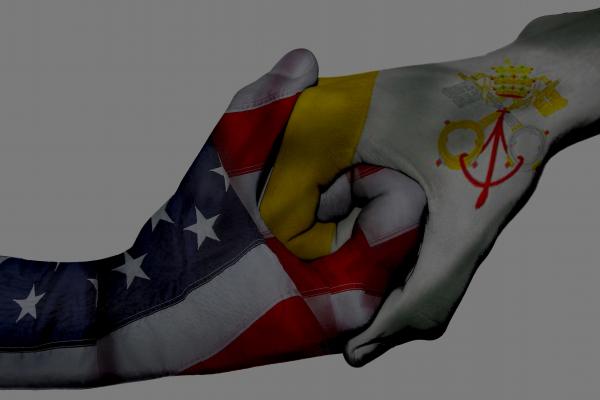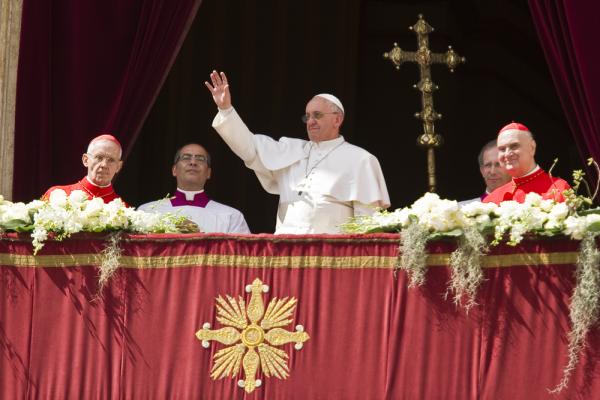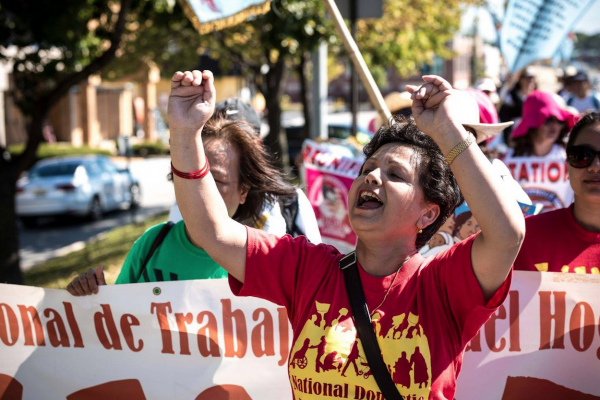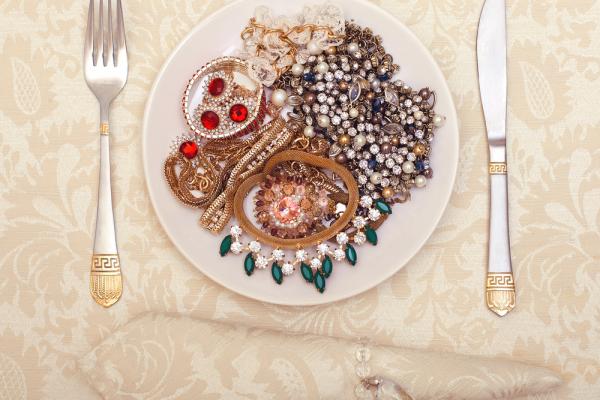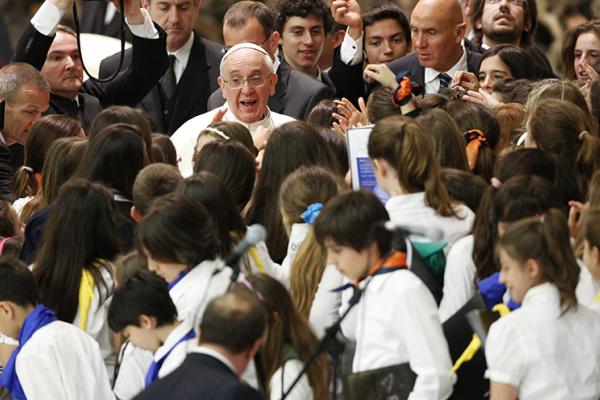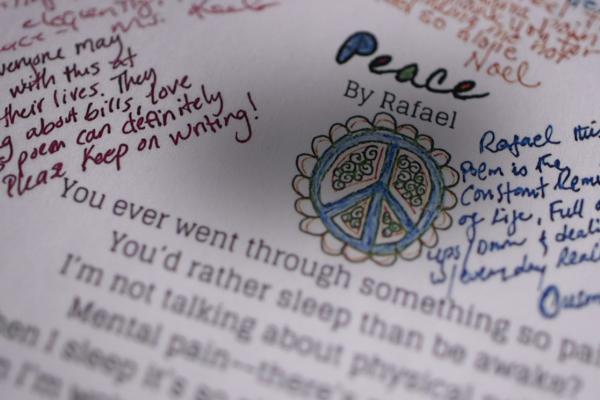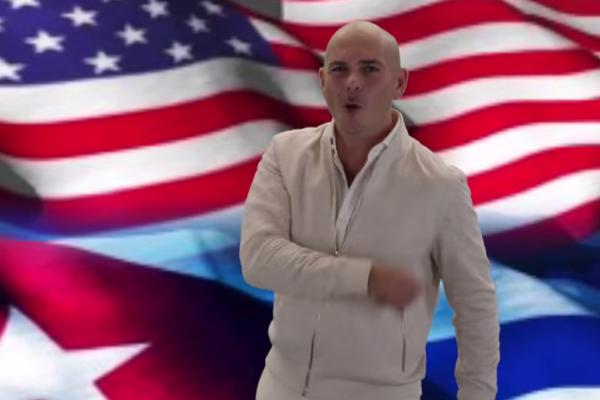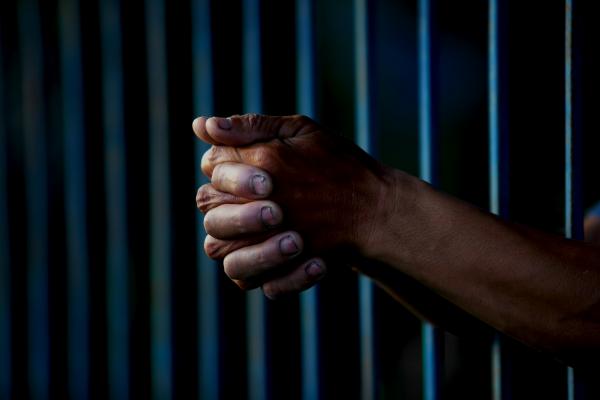I think the reason why the Christian Internet is so exasperating is because it is filled with so many people. Sensational click baits trend because we love juicy scandals. We share angry articles and judgmental pieces because it satisfies our human desires to point fingers and be in the right. The Internet has exposed the basest of our human fears and aired out our dirtiest laundry with the lure of anonymity and protection from our screens.
The Christian Internet is all of us with our mess, our flaws, our brokenness, our hurts, our mistakes, and our pains. Which means that as hard as it is for us to see through the hazy noise pollution, behind every instigator of a mean meme is a person made in the image of God. And as long as I believe that is true, you can’t pry me away from the Christian Internet because I am not about to miss the astounding beauty that is sure to rise from the squabbling ashes.
When President Obama meets with Pope Francis tomorrow, the world will catch a glimpse of what history looks like. The first pope from the global South in 1200 years will be welcomed in the White House by the first African-American president of the United States. This picture will be worth far, far more than a thousand words.
Pundits will analyze each public word spoken, and search for hints about the private words exchanged between these two. The politics of Pope Francis’ interaction with the President, and later with Congress, will fuel incessant speculation from Washington’s insiders. But around the world, and particularly in the global South, it’s the symbol of this meeting which will matter.
Pope Francis represents the changing face of world Christianity. Today, one billion Christians are found in Latin America and Africa. In 1980, more Christians were found in the global South than in the North for the first time in a thousand years. Every day, that movement accelerates. Francis’ words about the world’s injustices, and his actions of humble human solidarity, project the voice and longings of world Christianity’s new majority and resonant far beyond the boundaries of this faith.
President Obama symbolizes the changing demographics of America. Hope and demographics elected him in 2008, and by 2012 the changing face of the electorate in the U.S. proved determinative of America’s political future. Today, a majority of babies born in the U.S. are non-white, and some major urban areas already reflect the coming reality of a society without a racial majority.
On the eve of Yom Kippur and Pope Francis’ arrival to the United States, more than 100 Christian, Muslim, and Jewish faith leaders gathered at the National Press Club to participate in the Interfaith Religious Leaders Summit: End Hunger by 2030, hosted by Bread for the World. Participants shared a meal around tables as they reflected on their faith traditions around hunger and poverty, discussed how to best achieve a positive shift in U.S. national priorities by 2017, and publicly committed themselves and their faith communities to help end hunger by 2030.
The summit began with a reception during which everyone — from heads of churches to CEOs of faith-based organizations — shared introductions with new partners and reunited with old friends. Rev. Carlos Malavé of Christian Churches Together greeted everyone with a welcome.
“Tonight we come together as people of faith. If we gather together, as we are tonight, and we commit to each other in this task, we will certainly achieve everything that God is calling us to do,” he said.
As evangelical preachers in the American South, we’re excited to welcome our brother, Pope Francis, to the U.S.
We want to be explicit in our evangelical welcome because so many who claim to be evangelical are criticizing the pope for being political and not preaching orthodox theology.
In the past six days, I’ve walked 75 miles alongside 100 other women. We have 25 miles left to go.
We are 100 women who hail from all four corners of the earth. There are women from Uganda, China, Mexico, Haiti, the Philippines, Mexico, El Salvador, Argentina, Brazil, Vietnam, Peru, the Bahamas, and more. But we all call this country home.
Several grandmothers joined us on this journey, and their perseverance is an example for all of us. Our youngest walker is Jocelyn — she is four years old, and her joy is contagious. We all ask to take turns pushing her stroller. As we walk, we share our stories, our suffering, and our dreams. We sing, we pray, and we also walk in silence — reflecting on our faith, the meaning of compassion, dignity, and hope.
We are all here because we have been inspired by Pope Francis’ message of love and compassion towards migrants and refugees. We hope that he will pray for the 11 million undocumented immigrants who endure daily hardship, living in fear of deportation and family separation. We hope that he can touch the hearts of Americans across the nation to treat migrants with compassion and not cruelty.
During his visit to Bolivia in July, the pope addressed an audience of farmers, trash-pickers, craftspeople, and un-unionized workers. He expressed his compassion for the poor and the marginalized and advocated passionately for them, but he did not stop there. As he did in his encyclical on climate change, the pope identified and condemned the systemic and structural causes of their suffering: the global idolization of capital and the pursuit of wealth.
The book of Esther also reflects on a political and cultural system that venerates status and wealth, sets people against one another, and thwarts human flourishing. Even if the book does not explicitly call for change, the story’s ironic reversals, which result in increasingly absurd levels of violence and destruction, reveal just how vulnerable every person in the empire is, including those with the ability to influence the king.
Set in the Persian court in Susa (the capital of the ancient Persian Empire), the book of Esther reads like farce, brimming with political intrigue, sexual innuendo, and murderous plotting. However, for all its comic revelry, the book of Esther is concerned with the serious business of survival in a system driven by vanity, gluttony, and greed.
Figuring out why Pope Francis has upended so many expectations and what he might be contemplating for the future of the Catholic Church has become a parlor game almost as popular as the pontiff himself.
A single key can unlock these questions: Francis’ long-standing identity as a Jesuit priest.
It’s an all-encompassing personal and professional definition that the former Cardinal Jorge Bergoglio brought with him from Buenos Aires, and one that continues to shape almost everything he does as pope — even though he is the first pontiff to take his name from the 13th century Italian monk from Assisi who was famous for living with the poor and preaching to the animals.
“He may act like a Franciscan but he thinks like a Jesuit,” quipped the Rev. Thomas Reese, a fellow Jesuit who is a columnist for National Catholic Reporter.
This short documentary profiles Rafael, a member of the Free Minds Book Club, as he explains what writing poetry from prison means to him.
In a new music video, Pitbull, Carlos Santana, Eva Longoria, and others proclaim “we’re all Mexican,” in a celebration of Hispanic Heritage Month and protest against anti-immigrant political rhetoric, reports CNN.
Hispanic Heritage Month runs from mid-September to mid-October.
Ta-Nehisi Coates is at it again — this time in The Atlantic’s newly released October 2015 issue.
In “The Black Family in the Age of Mass Incarceration,” Coates wrestles with the dark underside of criminal justice in the United States. As he is apt to do, Coates effortlessly teases out the connections between our nation’s present situation — unimaginably high rates of incarceration, particularly among black Americans — and our historical plundering of the black community. Conceptually nuanced, historically rigorous, and artfully crafted, “Family” is a success on every level.
Yet soon after Coates’ piece was published, Thabiti Anyabwile issued a cogent response decrying Coates’ apparent hopelessness. Anyabwile’s response highlighted fundamental differences in the two writers’ worldviews. Physical bodies and the violence they endure, not theologies, are afforded primacy of place in Coates’ analyses.
In this sense, Anyabwile serves as an interesting counterweight to Coates. A pastor at Capitol Hill Baptist Church and council member with The Gospel Coalition, Anyabwile is unabashedly Christian. The “comforting narrative of divine law,” eschewed so often by Coates, is one in which Christians like Anyabwile and myself regularly take solace.

